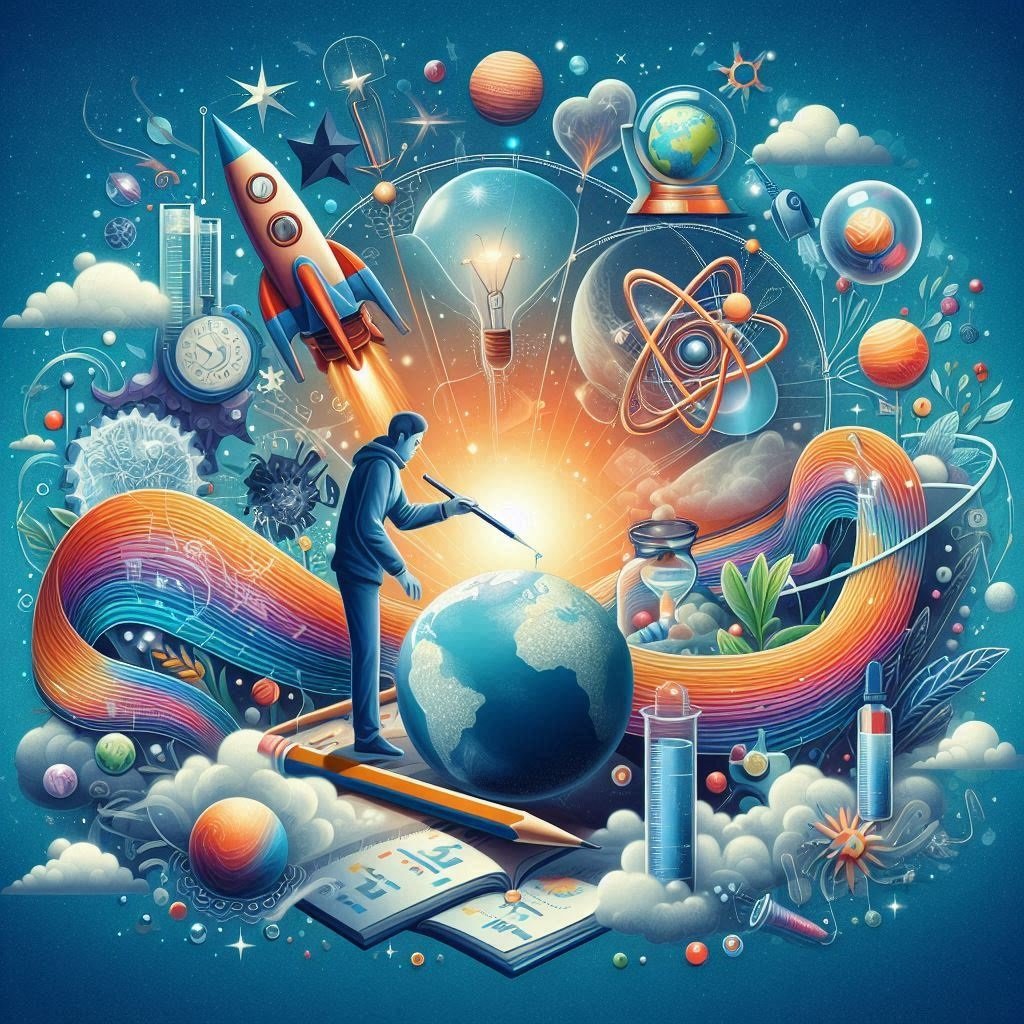Science is all around us. It’s in the air we breathe, the food we eat, and the technology we use every day. Science helps us understand the world and makes life better. Welcome to our journey through the wonders of science. We will explore, discover, and understand many exciting aspects of science together.
What Is Science?
Science is a way of learning about the world. It uses observation and experiments to explain natural phenomena. Scientists ask questions, make observations, conduct experiments, and draw conclusions. This process helps us understand how things work.
There are many branches of science. Each branch focuses on a different part of the natural world. Let’s dive into some fascinating fields of science.

Forensic Science: Solving Mysteries
Forensic science is the application of science to criminal investigations. It’s like being a detective, but instead of following clues, you follow scientific evidence.
Forensic scientists analyze evidence from crime scenes. This can include anything from fingerprints to DNA samples. Their work helps solve crimes and bring criminals to justice.
How Forensic Science Works
- Collecting Evidence: At a crime scene, forensic scientists collect various types of evidence.
- Analyzing Evidence: They use lab techniques to analyze the evidence.
- Interpreting Results: They interpret the results to find connections and solve the crime.
Marine Biology: Life Under the Sea
Marine biology is the study of life in the ocean. The ocean is a vast and mysterious place, home to many unique creatures. Marine biologists explore this underwater world to learn more about its inhabitants.
Amazing Marine Life
The ocean is teeming with life. From tiny plankton to giant whales, marine biology covers a wide range of organisms. Some fascinating marine creatures include:
- Dolphins: Intelligent and playful mammals.
- Coral Reefs: Diverse ecosystems built by tiny animals called coral polyps.
- Deep-Sea Creatures: Strange and wonderful organisms that live in the deep ocean, like the anglerfish.
Astronomy: Exploring the Universe
Astronomy is the study of celestial objects and phenomena. It’s about exploring the stars, planets, and galaxies beyond our planet.
The Wonders of Space
Space is full of wonders. Some of the most amazing astronomical phenomena include:
- Black Holes: Regions of space where gravity is so strong that not even light can escape.
- Supernovae: Explosions that occur when a star reaches the end of its life.
- Exoplanets: Planets that orbit stars outside our solar system.
Chemistry: The Study of Matter
Chemistry is the science of matter and its interactions. It helps us understand the substances that make up the world around us.
Everyday Chemistry
Chemistry is everywhere in our daily lives. It explains how things change and interact. Some common examples include:
- Cooking: Chemical reactions occur when we cook food.
- Medicine: Chemistry helps create drugs that cure diseases.
- Cleaning: Cleaning products work through chemical interactions.
Physics: The Laws of Nature
Physics is the study of the fundamental laws of nature. It explains how the universe works, from the smallest particles to the largest galaxies.
Key Concepts in Physics
- Force and Motion: How objects move and interact.
- Energy: The ability to do work, which exists in various forms like kinetic and potential energy.
- Waves: Oscillations that transfer energy, such as sound and light waves.
Earth Science: Understanding Our Planet
Earth science studies the Earth and its processes. It includes geology, meteorology, and environmental science.
Exploring Earth
Earth science helps us understand natural events and how they affect us. Key areas include:
- Volcanoes: How they form and erupt.
- Weather: The study of atmospheric conditions.
- Conservation: Efforts to protect the environment.
The Importance of Science
Science is crucial in many aspects of life. It drives innovation, solves problems, and improves our understanding of the world. Here’s why science matters:
- Medical Advances: Science has led to vaccines, treatments, and medical technologies that save lives.
- Environmental Protection: Science helps us understand climate change and develop solutions to protect our planet.
- Technological Innovation: From smartphones to space travel, science and technology go hand in hand.
The Process of Scientific Discovery
Scientific discovery is an ongoing process. It involves curiosity, observation, and experimentation. Here’s how it typically works:
- Question: A scientist asks a question about something they observe.
- Research: They gather information about the topic.
- Hypothesis: They make an educated guess to answer the question.
- Experiment: They conduct experiments to test the hypothesis.
- Analysis: They analyze the results of the experiments.
- Conclusion: They draw conclusions based on their findings.
- Sharing Results: They share their results with the scientific community for further scrutiny.
Getting Involved in Science
You don’t have to be a scientist to enjoy and appreciate science. Here are some ways to get involved:
- Visit Science Museums: These are great places to learn about different fields of science.
- Watch Science Shows: Programs like documentaries can be both entertaining and educational.
- Read Science Books: There are many books that explain scientific concepts in an easy-to-understand way.
- Join Science Clubs: Many communities have clubs where people share their interest in science.
- Participate in Citizen Science Projects: These projects involve the public in real scientific research.
The Future of Science
The future of science is full of possibilities. Advances in technology will open new frontiers and answer long-standing questions. Some exciting areas of future scientific exploration include:
- Artificial Intelligence: AI has the potential to revolutionize many fields, from healthcare to transportation.
- Space Exploration: Missions to Mars and beyond will expand our understanding of the universe.
- Quantum Computing: This technology could solve complex problems that are currently beyond our reach.
- Genomics: Understanding the human genome will lead to breakthroughs in medicine and biology.

Inspiring the Next Generation
Encouraging young people to take an interest in science is vital. They are the future scientists, engineers, and innovators. Here are some ways to inspire the next generation:
- Hands-On Experiments: Kids learn best when they can see and do things themselves.
- Science Fairs: These events showcase young talent and foster a love for science.
- STEM Education: Science, Technology, Engineering, and Math programs are essential for developing scientific skills.
- Role Models: Highlighting the achievements of scientists can motivate young people to pursue science.
Conclusion
Science is a fascinating and essential part of our lives. It helps us explore, discover, and understand the world around us. Whether you’re interested in forensic science, marine biology, astronomy, chemistry, physics, or earth science, there’s always something new to learn.
By fostering a love for science, we can ensure that future generations continue to make groundbreaking discoveries. So, let’s dive into the wonders of science and ignite our curiosity. Explore, discover, and understand – the adventure awaits!
Remember, science is not just a subject but a way of thinking. It encourages us to ask questions, seek answers, and always remain curious. So, let’s keep exploring and unraveling the mysteries of the universe together.
